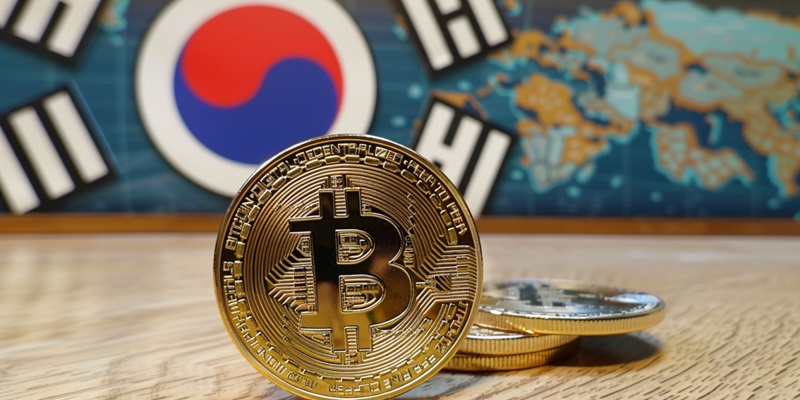In an unprecedented move to bolster investor confidence and safeguard user assets, the South Korean government has announced stringent new regulations for cryptocurrency exchanges. The Financial Supervisory Service (FSS) will enforce these rules as part of the Virtual Asset User Protection Act, which was enacted in July. The primary goal of these regulations is to offer a more secure trading environment while mitigating risks linked to bankruptcy and unforeseen financial crises, including liquidity issues. With these measures, South Korea aims to further cement its status as a pioneer in the digital currency landscape.
Key Components of the Virtual Asset User Protection Act
Insurance and Cold Storage Requirements
One of the cornerstone features of the new regulations is the mandatory insurance that cryptocurrency exchanges must secure for user assets as a protective measure against potential financial instability. Exchanges are required to maintain at least 80% of user deposits in cold storage wallets, separate from their operational funds. This ensures that user assets are not only more secure but also less susceptible to hacking and other cyber threats. In addition to this, the exchanges must entrust user cash deposits to licensed local banks, offering another layer of security for investors.
The legislation also mandates that exchanges hold crypto reserves equivalent to the amount and type of customer deposits. This essentially means that if a customer has deposited a certain cryptocurrency, the exchange must keep reserves of that exact cryptocurrency. This approach aims to avoid the liquidity issues that might arise in times of market volatility, thereby protecting the user from unnecessary losses. Exchanges that fail to meet these requirements could face significant penalties, including the suspension of their services by the Financial Services Commission (FSC), South Korea’s primary financial regulator.
Real-Time Monitoring and Reporting Obligations
Another pivotal aspect of the regulations is the introduction of real-time monitoring systems to detect and report suspicious trading activities. This tool is designed to bring greater transparency and ethical behavior in trading activities, aiming to eliminate fraud, insider trading, and other illegitimate activities that can disrupt the market. By implementing these systems, exchanges can ensure they are aligned with best practices in terms of investor security and regulatory compliance. Such measures not only protect individual investors but also fortify the integrity of South Korea’s digital assets market as a whole.
Non-compliance with these stringent monitoring and reporting obligations may result in severe punitive actions from the regulatory authorities. This further underscores the South Korean government’s commitment to investor protection and the establishment of a secure trading environment. Moreover, many exchanges including Huobi Korea, GDAC, and Hanbitco have already started implementing these systems and purchasing insurance to meet the new requirements. This collective move toward compliance indicates a promising shift in the industry towards heightened investor confidence and security.
Future Implications and Market Influence
Impact on Cryptocurrency Issuance and Market Dynamics
While the new regulations primarily focus on the distribution and trading of digital assets, it’s notable that South Korea has yet to introduce laws regulating the issuance of cryptocurrencies. This distinction is significant because it allows for continued innovation and growth within the sector, even as the government enforces stricter controls on how these digital assets are traded and held. By fostering a more secure environment for trading, the South Korean government aims to nurture a healthy balance between regulation and innovation.
The vibrant digital asset market in South Korea has experienced remarkable growth, with the Korean won surpassing the US dollar as the most-used fiat currency for crypto trading in the first quarter of 2024. This achievement underscores the effectiveness of South Korea’s regulatory efforts in instilling confidence among investors. The new rules are expected to drive further growth while ensuring that exchanges operate within a framework designed to protect investors from unfair practices and financial instability.
Enhancing Investor Security and Market Resilience
In a groundbreaking effort to boost investor confidence and protect user assets, the South Korean government has rolled out stringent new regulations for cryptocurrency exchanges. The Financial Supervisory Service (FSS) will be in charge of enforcing these rules, which come under the Virtual Asset User Protection Act enacted in July. These regulations are designed to create a more secure trading environment and to mitigate risks linked to bankruptcy and unexpected financial crises, including issues with liquidity.
By implementing these new measures, South Korea aims to further solidify its position as a pioneer in the digital currency sector. This move signals the country’s commitment to leading the way in digital financial innovation while ensuring that investors are adequately protected. The FSS will closely monitor exchanges to ensure compliance, thereby aiming to prevent any incidents that could erode public trust in the cryptocurrency market.
South Korea’s proactive stance is expected to set a precedent in the global cryptocurrency landscape, encouraging other nations to adopt similar measures for enhanced security and investor protection.

